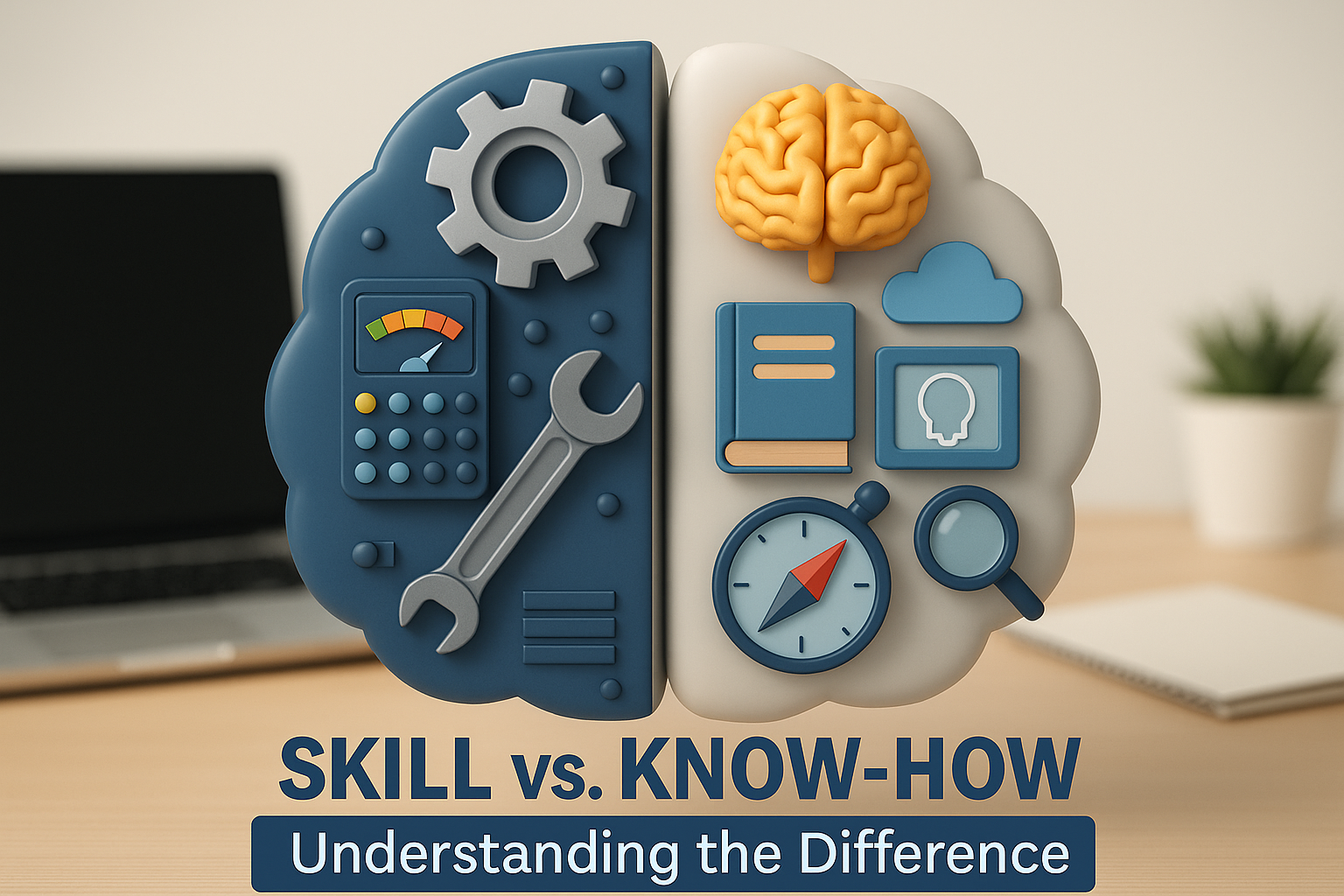Accreditation is a powerful influencer in your organization. Ensuring that you have accredited technicians performing repairs at the dealership level is pivotal to the organization’s success. Encouraging technicians to achieve and maintain accreditation offers benefits not only for the organization but for the individuals as well.
Incentivizing accreditation and driving participation in accreditation programs can be the difference between a high-performing organization and a low-performing organization. Accreditation demonstrates a commitment to quality, professionalism, and expertise. It serves as a differentiating factor when customers choose between service providers, as they are more likely to opt for organizations with recognized accreditations.
So how do you incentivize accreditation at your dealerships? Let’s start with why accreditation is so important and how it impacts your overall organization.
Why Is Accreditation Important?
Accreditation establishes a standardized skill set for service technicians. This skill set defines what work they can or cannot do in your dealership. When technicians are accredited, it ensures that they have a consistent level of knowledge, competency, and proficiency in their respective fields. This standard helps OEMs (original equipment manufacturers) maintain quality control and provide consistent service to their customer base.
Accreditation also reduces the risk of accidents, injuries, or damage to products being services. Technicians who undergo accreditation have a thorough understanding of safety protocols when working with complex machinery and equipment. Safety is always a priority, and accredited technicians contribute to maintaining a safe working environment.
When diagnosing service repairs, accreditation equips technicians with the skills they need to perform accurately and efficiently. Accreditation ensures that technicians are trained to troubleshoot issues, analyze technical specifications, and identify the root causes of equipment failures.
What Are the Pain Points of Not Having Accreditation?
Without accreditation, you might struggle with consistency in your service quality.When technicians lack a standard of training and knowledge in their field, there is no bar for them to adhere to when performing repairs. This can result in varying levels of expertise and competence among technicians, which can impact the overall customer experience. Inconsistent service quality can also lead to longer resolution times, increased customer complaints, and potential damage to your organization’s reputation.
Along with this lack of knowledge and expertise, you will experience an increased risk of errors. Without the appropriate training, technicians may be more prone to errors or mistakes during troubleshooting and repairs. They may be more apt to overlook important procedures, misdiagnose problems, or apply incorrect repair methods. These errors could potentially lead to equipment damage, safety hazards, or even costly rework – all of which will impact your customer experience and your bottom line as an organization.
It goes without saying that you will experience a lack of efficiency without accredited technicians. But what does that mean for your organization overall? If your service department is inefficient, you are looking at increased repair times, decreased productivity, and potential revenue losses due to dissatisfied clients.
How Can You Incentivize Accreditation?
To avoid some of those pain points of operating without accredited technicians, it is key to incentivize accreditation in your organization. Encouraging technicians to achieve and maintain accreditation can offer great benefits to your organization and to the career development of your technicians.
Some OEMs may require that only accredited technicians perform certain warranty-related services. When an organization is accredited, the dealership, and subsequently the technician, may receive a higher payout for warranty work. This extra compensation is helpful in encouraging technicians to maintain their accreditation.
Monetary rewards or bonuses are always a successful incentive for the completion of accreditation programs. Many organizations will offer a bonus to technicians who achieve accreditation, and that bonus may increase with the specific level that the technician holds in their trade.
Accreditation programs often include ongoing training and professional development opportunities. This allows technicians to stay updated with the latest technological advancements, industry trends, and best practices. Continual learning enhances their skill set and enables them to adapt to evolving customer needs and emerging technologies.
The skills and training that technicians obtain from accreditation programs often come in the form of “titles.” These tiles become something of a bragging right and allow technicians to display these titles, not only within the organization but outward towards the industry as a whole.
The Challenges that Training Managers Face
When developing a carrot and stick model in the form of a training program for the first time, it can be intimidating to implement. There may be some stress associated with the adoption and participation of the program.
While the struggle for engagement is something that may be experienced at the beginning of the program, it is important to keep in mind that you are offering a true benefit to your technicians with these programs.
Incentives are put in place to encourage participation, but the program is ultimately a huge win for their current skill set and their career development. Once these principles are conveyed and understood, engagement will take an uptick, and you’ll be on your way to becoming an accredited organization.
By fostering this relationship from day one with new technicians, you can ensure that everyone feels valued and that their development is being invested in. Always communicate the benefits to the individuals as well as the organization when implementing a new component of your training program. With the end vision in mind, a team can work together better to achieve the bigger goals.
How Does LatitudeLearning Help with Accreditation?
When faced with the task of selecting an LMS (learning management system) that can keep accreditation in mind, look no further than LatitudeLearning. With an effective training platform, you can handle the accreditation program of your organization.
LatitudeLearning LMS gives you the ability to create highly customized courses that can be tailored to the specific accreditation requirements for your technicians. You can develop engaging multimedia content, assessments, and interactive modules to facilitate learning and ensure technicians acquire the necessary knowledge and skills for accreditation.
Metrics for tracking technician progress are also helpful in monitoring accreditation. LatitudeLearninig LMS can access comprehensive reports and analytics that provide insights into accreditation completion rates, skill gaps, and overall training effectiveness. These reports help training managers identify areas for improvement and make data-driven decisions to support technicians’ accreditation goals.
Most importantly, LatitudeLearning LMS has the ability to integrate with other systems. This integration capability enables training managers to streamline data exchange, automate workflows, and enhance the overall training and accreditation management process. By integrating with these systems, you can see the drivers of warranty support and financial aspects of the dealership.
Accreditation is a dynamic process, constantly changing due to industry technologies or updates. LatitudeLearning can help you keep track of the changes coming down the pipeline and give you plenty of notice to ensure your technicians maintain their accreditation in light of these changes.
Training managers who are struggling to find the functionality they need to monitor, manage, and communicate their accreditation program can lean on LatitudeLearning for support. With a broad range of features that streamline training processes, enhance communication and collaboration, and ensure technicians have the necessary resources to succeed in their accreditation endeavor – accreditation becomes a lot more manageable.
Take a look at our ebook that was created specifically for extended enterprise learning and get started on the path to incentivizing the accreditation of your organization!





[…] Skilled Laborers in OEMs and other trade industries embody the essence of precision. Everything they do must be done meticulously and precisely to provide the quality that is desired. Their intricate work requires attention to detail, a deep understanding of materials, and an unwavering commitment to quality. Whether they are aligning intricate circuitry or meticulously calibrating engine components, their expertise ensures that the end product meets the highest standards of performance, safety, and quality. […]